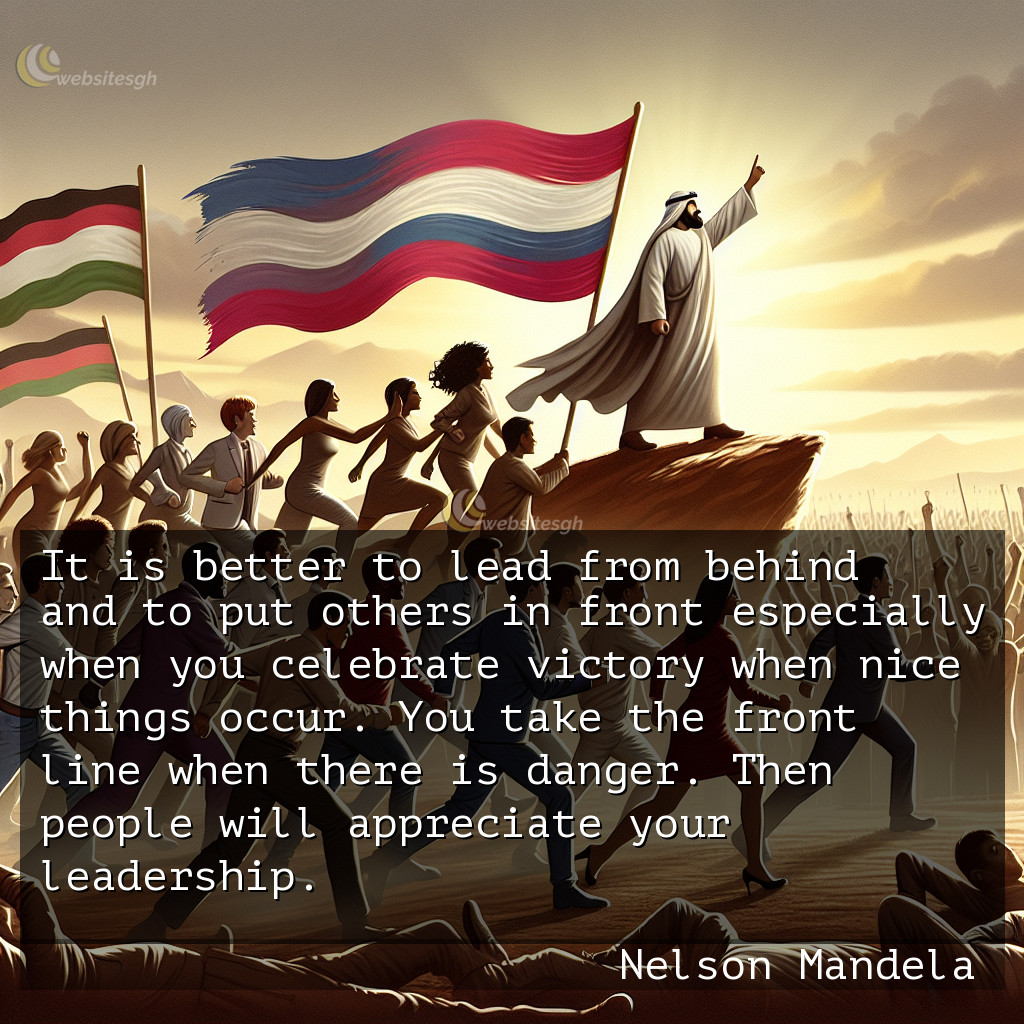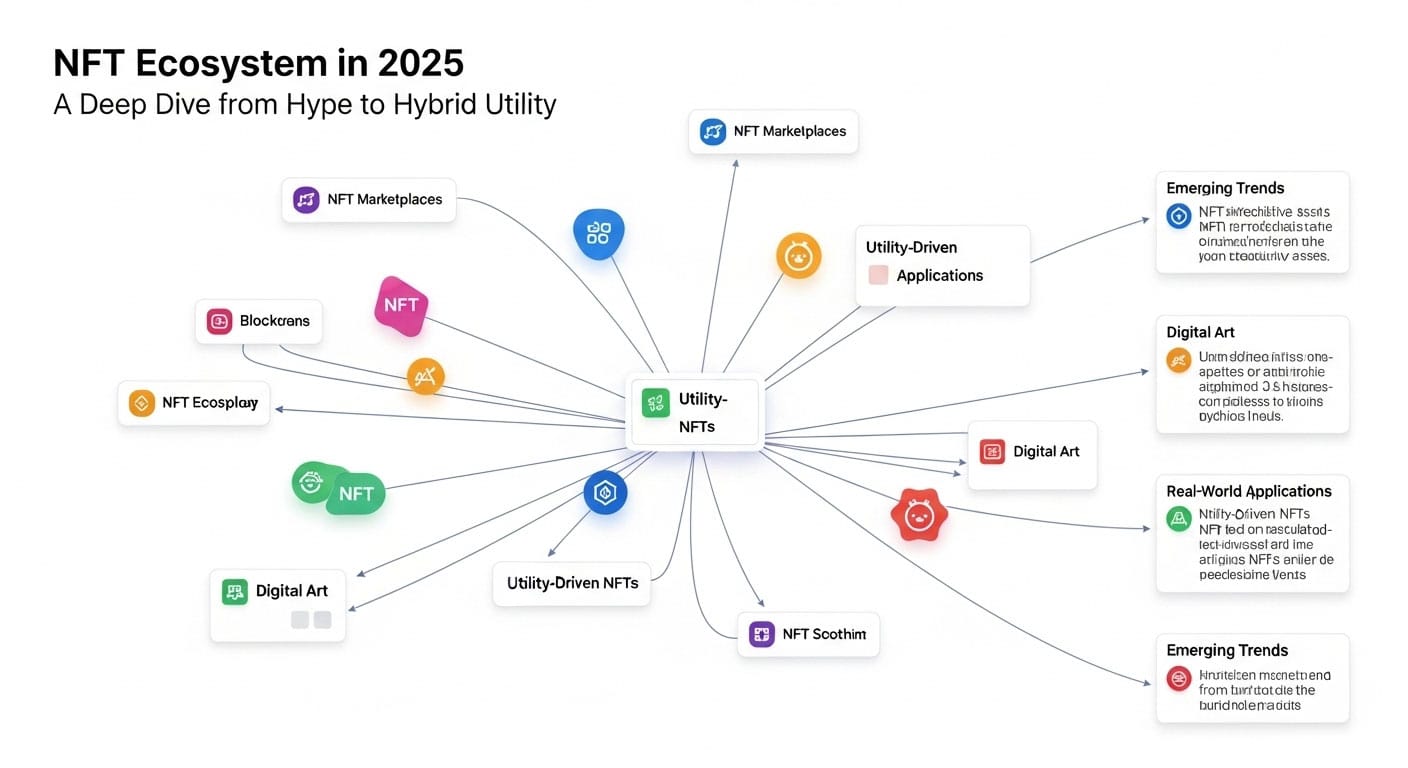Nelson Mandela Quotes on Leadership
It is better to lead from behind and to put others in front especially when you celebrate victory when nice things occur. You take the front line when there is danger. Then people will appreciate your leadership.
By: Nelson Mandela
The Essence of True Leadership
Leadership is an art, a responsibility, and a journey of selflessness. The words of Nelson Mandela, a paragon of leadership, encapsulate the essence of what it means to guide, inspire, and support others. Mandela’s approach to leadership is not about seeking the limelight but about empowering others to shine.

It’s about being the silent force that propels a team forward and only stepping into the spotlight when it’s time to shield or lead the charge against challenges.
True leadership is about understanding the strengths and weaknesses of your team and positioning them in such a way that their talents are maximized, and their flaws are mitigated. It’s about celebrating the collective achievements as a testament to the group’s effort rather than an individual’s prowess. When leaders put their team members in front, they foster a sense of ownership and pride in the work, which is far more motivating than any personal accolade could ever be.
Leading from Behind: A Strategy for Empowerment

When you lead from behind, you create leaders, not followers. You encourage people to take initiative, make decisions, and grow in confidence. This approach is particularly effective in nurturing young minds, such as those of younger ones who are at a critical stage of their development. They learn to trust their judgment, take responsibility for their actions, and understand the value of teamwork.
Leading from behind also means being a mentor. It involves guiding from the shadows, offering wisdom and advice when needed, and stepping back to allow others to apply it. This method of leadership builds a legacy that outlives any individual’s tenure because it instills the principles of good leadership in the next generation.
Stepping to the Front: The Mark of Courage
However, leadership is not just about the good times. It’s easy to lead when the path is clear and the skies are blue. The true test of leadership is how one reacts when the storm clouds gather. Mandela’s quote reminds us that leaders must be the first to face danger. They must be the shield for their team, ready to absorb the first blow and steady the ship through troubled waters.
This act of bravery and self-sacrifice is what separates true leaders from mere figureheads. When young people see this kind of leadership in action, they learn the importance of courage, responsibility, and the willingness to face challenges head-on. It’s a powerful lesson in character building and one that will serve them well in all walks of life.
The Balance of Recognition and Responsibility

Leadership is also about balance. It’s about knowing when to step forward and when to step back. It’s about understanding that the spotlight can both illuminate and blind. By giving others the chance to bask in the glow of success, leaders not only motivate their team but also build a culture of mutual respect and appreciation.
Conversely, by stepping into the fray when danger looms, leaders demonstrate their commitment to the group’s well-being. This balance of recognition and responsibility creates a bond between the leader and the team that is based on trust and mutual respect.
Appreciation: The Fuel for Motivation

Appreciation is a powerful motivator. When people feel valued and recognized, they are more likely to put in extra effort and strive for excellence. Leaders who understand this are adept at using recognition to inspire their teams. They know that a simple ‘thank you’ or public acknowledgment can go a long way in boosting morale and productivity.
However, appreciation should not be reserved for the end of a project or the achievement of a goal. It should be a continuous process that acknowledges the small victories along the way. This ongoing recognition helps to maintain motivation and keeps the team engaged and focused on the objectives at hand.
Leadership for Life Productivity
Leadership principles are not just applicable to the boardroom or the battlefield; they are equally relevant to personal productivity and life improvement.

By leading ourselves with the same principles Mandela espoused, we can become more effective and fulfilled individuals.
When we lead from behind in our personal lives, we empower ourselves to learn, grow, and take on new challenges. We become mentors to our future selves, providing the wisdom and encouragement needed to reach our full potential. And when we face personal dangers or challenges, we step up to confront them with courage and determination.
By applying these leadership principles to our daily lives, we can improve our productivity, achieve our goals, and lead a more balanced and fulfilling life.
Creating a Legacy of Leaders
The ultimate goal of leadership should be to create more leaders, not just followers. By leading from behind and stepping forward when necessary, leaders can instill the values, skills, and courage that will enable others to lead in their own right. This creates a virtuous cycle of empowerment and growth that can have a profound impact on society.

Whether you’re a teenager just starting out on your leadership journey or an experienced professional, the principles of leading from behind and stepping forward in times of danger are timeless and universal. They are the foundation upon which great leaders are built and the legacy they leave behind.
FAQs about Nelson Mandela on Leadership
- What does it mean to lead from behind?Leading from behind means empowering others to take the lead, making decisions, and showcasing their talents. It’s about guiding and supporting from the shadows rather than seeking the spotlight for oneself.
- How can young people apply Mandela’s leadership principles?Young people can apply Mandela’s leadership principles by taking initiative, being responsible for their actions, and learning to work effectively within a team. They can also practice stepping up during challenging times to develop courage and resilience.
- Why is it important for a leader to step forward in times of danger?It’s important for a leader to step forward in times of danger to demonstrate their commitment to the team’s well-being, to show courage, and to protect and guide the team through challenges.
- How does appreciation motivate a team?Appreciation makes team members feel valued and recognized, which in turn boosts their morale and encourages them to strive for excellence and put in extra effort.
- Can leadership principles be applied to personal life?Yes, leadership principles can be applied to personal life to improve self-motivation, productivity, and personal growth. They help individuals face personal challenges with courage and determination.
- What is the ultimate goal of leadership according to Mandela?The ultimate goal of leadership, according to Mandela, is to create more leaders who can carry on the legacy of empowerment, courage, and positive change.
- How does leading from behind create more leaders?Leading from behind creates more leaders by fostering an environment where individuals are encouraged to take initiative, make decisions, and develop leadership skills in a supportive setting.
- What is the role of a mentor in leadership?A mentor in leadership provides guidance, shares knowledge, and supports the growth of others without overshadowing their ability to lead and make decisions.
- How can leaders balance recognition and responsibility?Leaders can balance recognition and responsibility by celebrating team achievements and giving credit where it’s due, while also being ready to take charge and protect the team during challenging times.
- Why is it important for leaders to build a culture of mutual respect?Building a culture of mutual respect ensures that team members feel valued and understood, which fosters a positive working environment and encourages collaboration and trust.
Leadership is not a position or a title; it’s an action and an example. It’s about making a positive impact on the lives of others and leaving a legacy that inspires future generations to do the same. By embracing the principles of leading from behind and stepping forward when necessary, we can all become leaders in our own right, regardless of our age or stage in life. The journey of leadership is ongoing, and each step we take, whether behind or in front, shapes the path for those who follow.










